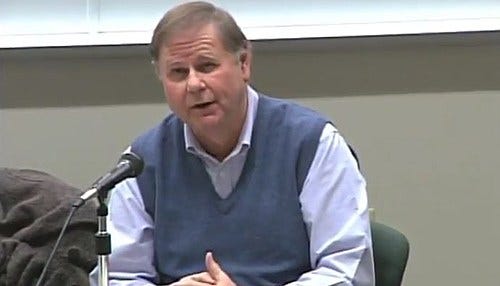Tyner: ‘Lose-Lose’ Situation Brewing With Trump Tariffs
 Tyner says "it's unusual to see returns that significant."
Tyner says "it's unusual to see returns that significant."
Subscriber Benefit
As a subscriber you can listen to articles at work, in the car, or while you work out. Subscribe NowPurdue University agricultural economist Wally Tyner says $12 billion in recently-announced federal aid for farmers will not offset the long-term damage if a series of international tariffs levied by President Donald Trump stick around. Tyner says barriers created by the tariffs and the ensuing retaliatory measures from trading partners like China, Mexico and the European Union are a "lose-lose" situation for all involved. In an interview with Inside INdiana Business, Tyner says if trade disagreements can be solved within a year — which is the length of time the emergency aid is designed to cover — the negative effects will be minimal.
The Trump administration’s main target of the trade dispute is China, which Tyner says stands to suffer equal economic consequences. More specifically, Tyner says, the aim is to fight intellectual property theft in China that has gone unchecked for years. He says the issue needs to be taken on, but tariffs are not the way to do it.
The agricultural part of the tariffs focus on commodities including corn, soybeans, pork, beef and wheat. Indiana is one of the highest-volume soybean, corn and swine producers in the country. "The interesting thing to me is that the economic well-being of the United State goes down, but the economic well-being of China goes down, as well. They each go down about the same: $2.6 billion a year for every year the tariffs are in effect, so this one year payment — which is certainly, at least in part, politically-based — does not do anything about the long-term impact," Tyner said. "Who’s the winner? Brazil." He added that the South American nation would gain some of the expected 13 percent dip in U.S. production from the tariffs.
Tyner says the only way the current strategy could be effective for the long-term is if the tariffs force trading partners to the table to re-consider existing agreements, but "not if the tariffs stay." On Wednesday, Trump met with European Union President Jean-Claude Juncker and in a joint statement, the leaders said the U.S. and EU will "work together toward zero tariffs, zero non-tariff barriers, and zero subsidies on non-auto industrial goods."
Tyner concluded by saying "these kinds of trade barriers are lose-lose. The American consumer is going to lose. The Chinese consumer is going to lose. It’s in the interest of the United States to do everything we can to solve this trade issue."
The Trump administration’s main target of the trade dispute is China, which Purdue University agricultural economist Wally Tyner says stands to suffer equal economic consequences.
